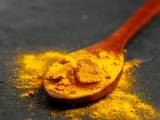Find out what really happens to your brain when you eat chocolate: surprising effects of sweet temptation!

Chocolate has always been considered an irresistible treat, but have you ever wondered what happens to the brain when we eat chocolate? In addition to sensory pleasure, this food activates real chemical reactions involving mood, memory, and even desire. In this article you will find out how chocolate affects the brain according to the latest scientific research, and why it can become a real treat for the mind as well.
1. Chocolate stimulates the production of "happiness hormones"
Eating chocolate stimulates the release of feel-good chemicals (such as dopamine, serotonin, and endorphins), which improve mood, reduce stress, and generate an immediate pleasant feeling.
A study published in Nutrients highlights the key role of serotonin in regulating mood: consumption of chocolate (especially dark chocolate) can increase levels of tryptophan, the precursor of serotonin.
Source: Nutrients - Mood, Memory and Chocolate
2. Chocolate improves cognitive function
Regular consumption of flavonoids found in cocoa has been associated with enhanced cognitive function, particularly attention, concentration and memory.
A study by the University of L'Aquila showed that flavanols in cocoa can improve mental performance, with even more significant effects in the elderly population.
Source: Frontiers in Nutrition - Cocoa Flavanols and Brain Function.
3. Anti-stress effect: a pampering for the nervous system as well
Dark chocolate is a valuable source of magnesium, a key mineral for the well-being of the nervous system, capable of promoting relaxation and relieving symptoms related to stress and anxiety.
According to a study published in The Journal of Nutritional Biochemistry, daily consumption of dark chocolate for two weeks can help significantly reduce levels of cortisol, known as the stress hormone.
Source: Journal of Nutritional Biochemistry - Chocolate and Stress
4. Chocolate is slightly addictive (but not bad!).
In difficult times we often crave chocolate, but why? The answer lies in substances such as theobromine and phenylethylamine, which stimulate brain areas related to the reward system (similar, if milder, to what happens with some psychoactive substances).
A study published in Appetite showed that chocolate activates dopaminergic pleasure circuits, explaining the feeling of comfort and well-being that often accompanies its consumption.
Source: Appetite - Chocolate craving and addiction
5. Long-term benefits: an ally for the aging brain
Dark chocolate, rich in antioxidants such as cocoa flavanols, may help protect the brain from age-related cognitive decline.
According to a study published in Nature Neuroscience, in adults over 65, regular consumption of flavanols was associated with significant improvements in visual memory and information processing speed
Source: Nature Neuroscience - Cocoa flavanols and aging brain
In conclusion: a pleasure that is good for the mind
Chocolate is not only a treat for the palate, it is also a true ally of our mental well-being. Just a small piece is enough to cheer us up, but its benefits go far beyond that: it helps the brain stay in shape even as time passes. Especially if we're talking about dark chocolate (and without overdoing it), it's a small gesture that can really make a difference.
So the next time you're feeling a little down, tired, or need to focus better, do yourself a favor: have a small square of chocolate. It's not just a matter of taste-it's neuroscience!
You might also be interested in:
 Daniele Mainieri
Daniele Mainieri


Comments